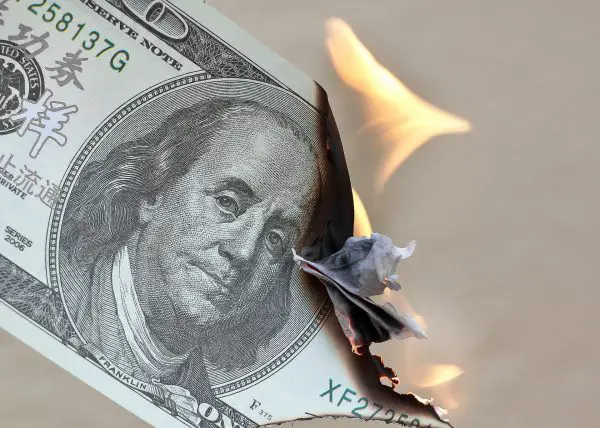Earlier this week, Venezuelan President Nicholas Maduro noted that Venezuela would be shifting away from using the US dollar in international trade, noting the move would help the Bolivarian Republic free its economy from foreign influence.
With the decision, Venezuela becomes the latest nation to reduce its reliance on the US dollar in settling international trade obligations. It will join other nations making similar moves, such as Argentina, Brazil, and Iraq, and the BRICS group, which is looking at creating its own reserve currency to replace the dollar.
In an interview with local media on Tuesday, Maduro said, “This is the path of Venezuela and the path of a free economy where currencies are not used to punish countries and impose sanctions.”
Venezuela is one of the five most sanctioned nations in the world. As a result, it has suffered one of the largest economic contractions in history. While Washington allowed US oil major Chevron to reenter the nation and resume limited oil production in the country, most of the remaining sanctions continue to remain, and suppress the Venezuelan economy.
The United States has increasingly sought to weaponize access to Western financial mechanisms in pursuit of geopolitical aims, most recently seeking to impact Russia’s ability to conduct international trade by denying it access to everything from the SWIFT instant financial messaging system, to its dollar reserves. As a result, nations have begun to become concerned that their national economies may one day be shut down simply for not obeying some edict out of Washington and they have begun to look for alternative ways of settling international trade obligations without the use of US dollars.
Brazilian President Luiz Inacio Lula da Silva and his Argentinian counterpart, Alberto Fernandez, earlier this month agreed to work together to come up with a mechanism to use their national currencies to settle mutual transactions.
Argentina confirmed it would use yuan to settle transactions for Chinese imports, rather than US dollars last month, as a way to try and safeguard the nation’s swindling reserves. Meanwhile Brazil and China have agreed to cease their use of the dollar in bilateral transactions as a means of reducing investment costs and forging deeper economic ties between the two countries. Also, energy producer Iraq’s central bank has announced that it will, for the first time, allow commerce with China to be settled in yuan.
In China, where it has just received the first shipment of liquified natural gas paid for in yuan, the yuan has overtaken the dollar in the international trade transactions of the nation.

